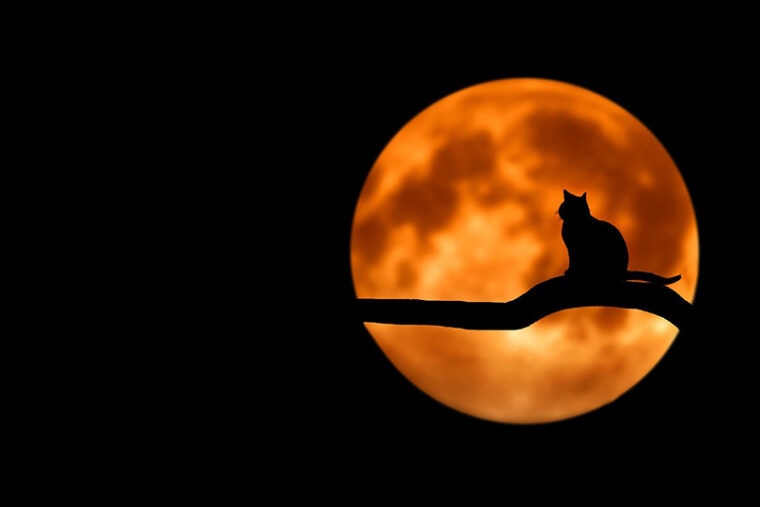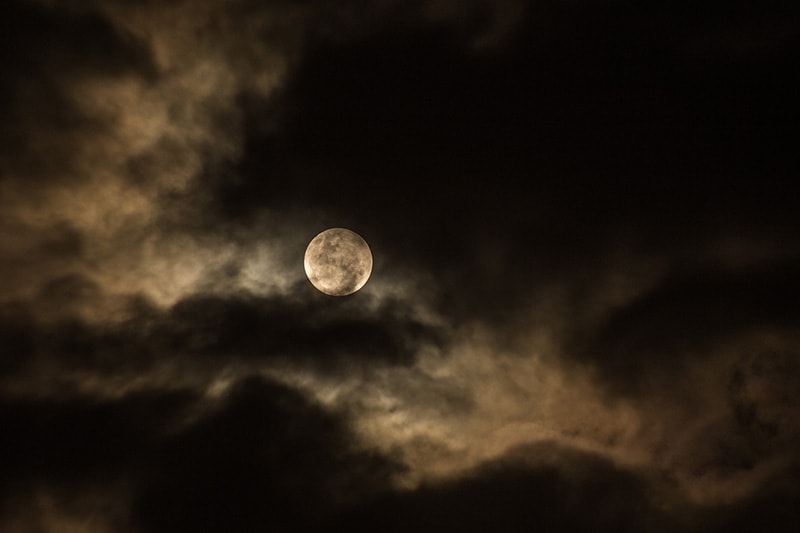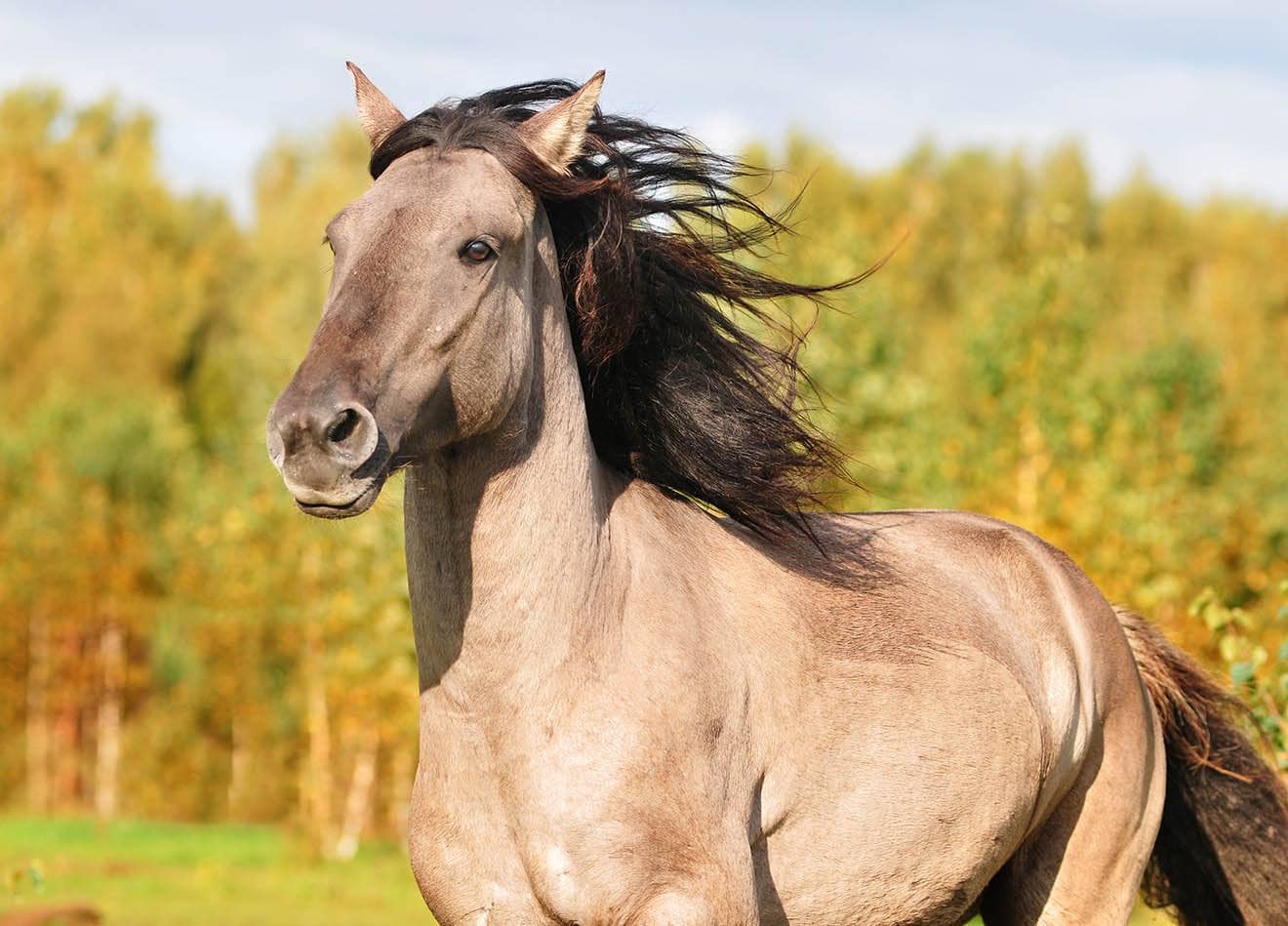
The image of the full moon evokes many emotions, anecdotes, and folklore legends. It has a mystical quality as it returns every 28 days. The awe we have for the moon is well-founded. After all, it’s the force behind the tides. Many claim that it can also affect people and, consequently, their pets.
The answer is more nuanced than a simple yes or no. Part of the reason is the number of unknowns. Science has many unanswered questions about animal physiology. Of course, humans and their infinite capacity to embrace stories and myths is another confounding factor. That fact brings to light another wrinkle for determining the full moon’s exact influence on our pets.
Myths Regarding the Full Moon
The moon gets a bad rap. It mystified the ancient peoples who theorized and debated the essence of its power and force on humans. The Romans named the goddess of the moon Luna. Roman scholar Marcus Terentius Varro listed her among those influential to agriculture, giving us another earthly connection to the moon. Ironically, the words “lunacy” and “lunatic” also come from the word “luna,” thus referencing the moon’s effects on living things.
Some of the most persistent myths regarding the full moon involve its effects on human behavior. Some have even suggested the existence of so-called “human tidal waves,” connecting the moon’s influence on tides with the water in our bodies. Anecdotal evidence suggests a spike in ER and hospital admissions during this lunar phase. However, numerous studies contradict this myth.
One study investigated a claim of increases in gastrointestinal bleeding incidences during the full moon, finding no evidence of the purported “lunar effect” on the human condition.1 Other research found no differences in pediatric psychiatric cases during the full moon, further debunking these assertions.2 Scientists have also reported no significant patterns, even in animal ER visits.
Yet, some findings exist on the other side of the debate. One study considered animal bite incidences and a possible correlation with the full moon.3 These data showed a significant spike in cases during this time. It’s worth noting that the animals are most often known to the victim as family pets or neighborhood dogs.
Do these data provide evidence of a lunar effect on people and animals? Perhaps the answer lies in the wise words of Sherlock Holmes: “It is a capital mistake to theorize before one has data. Insensibly, one begins to twist facts to suit theories, instead of theories to suit facts.”

Observations in the Wild
The obvious thing about the full moon is its effects on the landscape. Many prey species are active at night or nocturnal to avoid detection by predators. Consequently, the latter also adjust their schedules to increase their hunting success. One study looked at the behavior of African Lions and the effects on predation of herbivores and humans.
The researchers found that these felines changed their activity patterns to coincide with dark nights after the full moon.4 They hunted shortly after sunset, targeting humans who were active in the evenings. It wasn’t the light of the full moon but, instead, the dark evenings that made the victims more vulnerable to predation. The full moon was the harbinger of bad things to come.
Similar patterns of behavior exist with prey species that reduce their activity with the full moon. Likewise, scientists have observed comparable changes in predators in response. Another study documented physiological changes in Barnacle Geese during supermoon events when the moon is closest to the Earth.
All these findings indicate that the moon can influence animals. However, there is one wild card yet to be played.

The Human Factor
Many anecdotes and scientific data, like the African Lion study, provide fuel to stoke the fire of the full moon’s power over humans and animals. It figures prominently in our folklore, literature, and films. Hippocrates wrote of the “…one who is seized with terror, fright, and madness during the night is being visited by the goddess of the moon.” Shakespeare’s “Othello” warns of a moon too close to the Earth.
One study found that 81% of mental health workers believed in the so-called “lunar effect.”5 If a dog or cat owner fears the night and the full moon, can it affect their pets? Thousands of years of domestication have left its mark on humans and their animal companions.
Research has shown that dogs can read human emotions. It stands to reason that if someone is acting fearful, their pet will pick up on these feelings and respond accordingly. It may not be the full moon directly affecting people. After all, it has seemingly no effect on smaller water bodies. How can one assume that it can influence an individual—or their pet?
Wildlife responds to the lunar phases for various reasons, many of which are tied to survival. Canines and felines are intelligent animals that can learn by observation. Therefore, their actions during the full moon are explainable and make evolutionary sense. Pets are a different story because of their connection with people. They pick up subtle clues that their owners display.
Perhaps the behaviors you notice in your pets during the full moon are simply examples of their keen observation and well-developed senses. Remember that we’re open books to our animal companions, and this can have an effect on how they act.

 Final Thoughts
Final Thoughts
The belief in the force of the full moon goes back thousands of years. The unknown is scary, which may explain the fanciful ways of dealing with things we don’t understand. However, these roots are deep, even affecting us today in varying degrees. Our pets may use their instincts to take advantage of a moonlit night. However, little evidence suggests anything more than a myth that lights the darkness.
Also Read:
- Does the Solar Eclipse Affect Pets? Effects & Safety Tips
- Does The Full Moon Affect Cats? What Science Says
Featured Image Credit: Bessi, Pixabay







